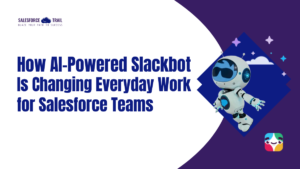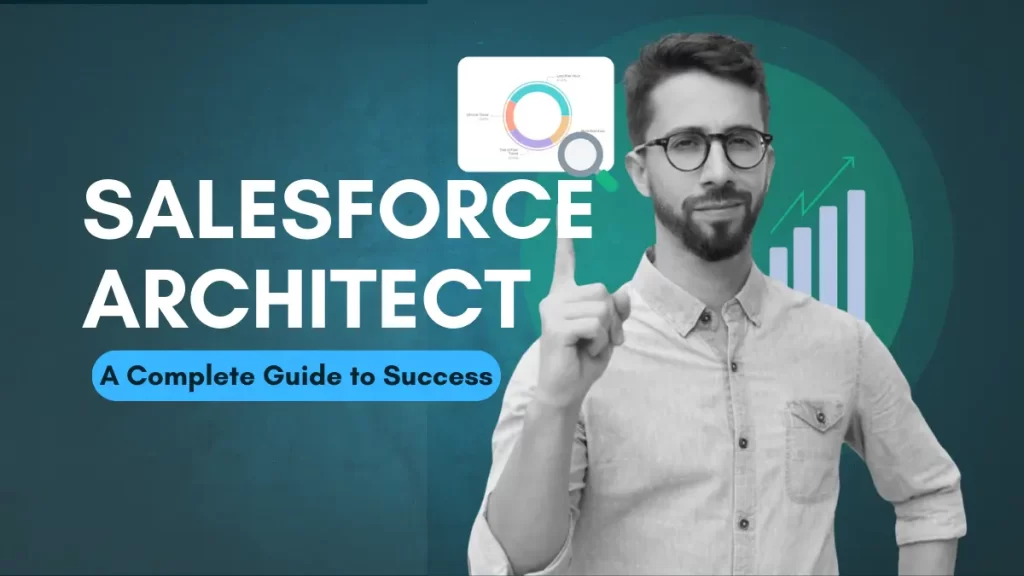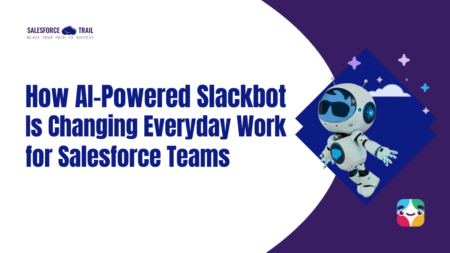Becoming a Salesforce Architect is an exciting and rewarding career choice. If you enjoy working with technology, and solving problems and want to help companies build powerful systems using Salesforce, this role might be perfect for you! This guide will explore everything about becoming a Salesforce Architect. Don’t worry if you’re starting this guide is easy to understand and will help you take the right steps toward a Salesforce career.
What is a Salesforce Architect?
A Salesforce Architect develops and designs solutions leveraging the full capability of the Salesforce platform. Salesforce is an organization that makes the life of a business person easy and organized as it provides software for managing customer relations which is very adaptable to any kind or size of company. It means you will design systems that fit the company’s needs.
There are different types of Salesforce Architects, including:
- Technical Architect: They make large, scalable systems and manage the overall architecture of a Salesforce org from security to integrations
- Solution Architect: The solution Architect is responsible for ensuring that the Salesforce system is compatible with the business goals created for your company.
Enterprise Architect: Works on larger systems often involving various software tools and platforms.
Want To Become a Salesforce Developer? | A Complete Guide to Success

Why Should You Become a Salesforce Architect?
There are many reasons to become an Architect. Here are a few:
- High Demand: Many companies seek Architects to help grow and improve their systems.
- Good Salary: Architects are well-paid because their skills are in high demand.
- Career Growth: You can move into higher positions, like Chief Technology Officer (CTO) or Senior IT Director, after gaining experience as a Salesforce Architect.
Key Skills Needed to Become a Salesforce Architect
To become an Architect, you need certain skills. Here are some important ones:
- Deep Salesforce Knowledge: You should know about Salesforce products, like Sales Cloud and Service Cloud.
- Problem-solving: Be a good problem-solver as an architect, and assist with solutions that will scale to the company.
- Integration Skills: You should know how to integrate Salesforce with other software programs or systems as needed.
- Leadership: Architects are often considered team leaders and decide to allocate work among group members, whether they be developers, consultants, or administrators
- Business knowledge: You need to know how businesses work and what they would require from Salesforce to be successful.
If you are new to Salesforce, you can start with beginner certifications like Salesforce Administrator or Platform Developer to build your skills.
Step-by-Step Guide to Becoming a Salesforce Architect
- Learn the Basics: Start learning the basics of the Salesforce ecosystem using Trailhead, Salesforce’s free learning platform. You can take lessons on everything from beginner to advanced topics.
- Gain Experience: Work in roles like Salesforce Administrator or Developer to experience outworking over the platform.
- Get Certified: Begin from entry-level certifications and proceed to Architect Salesforce Certifications stage-by-stage.
- Join the Salesforce Community: The Salesforce community is full of people who help each other. Join forums, attend events like Dreamforce, and connect with other professionals to learn and grow.
- Study Continuously: Because of many enhancements, now and then, things on Salesforce change, therefore, one needs to keep learning.
Tips for Success as a Salesforce Architect
- Build Strong Foundations: Don’t rush through learning the basics master them first.
- Work on Real Projects: The more projects you work on, the more experience you’ll gain. Start small if you need to, but always aim to improve.
- Network: Join local Salesforce User Groups (such as Salesforce Trail WhatsApp Group), attend events, and network with other members for help and guidance.
- Scale Your Business: Salesforce grows with you, keep learning about new features and learn the changes, this will set you apart in your career.
Conclusion:
Becoming a Salesforce Architect takes time, dedication, and continuous learning, but it’s a career with great rewards. From high demand and excellent pay to opportunities for career growth, there’s never been a better time to start your journey toward becoming a Salesforce Architect. By following the steps in this guide and gaining experience, you can build a successful Salesforce career.
Good luck on your path to becoming a Salesforce Architect!
Must Visit Links:-
- Best Salesforce Job Roles for Freshers in 2024: A Complete Guide
- How Best Salesforce Consultants Can Boost Your Business Growth 10X?
- How to Unlock Business Value with Data Cloud and AI
Resources
- [Salesforce Developer] (https://developer.salesforce.com/)
- [Salesforce Success Community] (https://success.salesforce.com/)
For more insights, trends, and news related to Salesforce, stay tuned with Salesforce Trail
Mark Jacobes is a seasoned Salesforce expert, passionate about empowering businesses through innovative CRM solutions. With over 6 years of experience in the Salesforce ecosystem, Mark specializes in Salesforce development, integrations, and digital transformation strategies.
- Mark Jacobeshttps://salesforcetrail.com/author/markjacobes/September 8, 2025
- Mark Jacobeshttps://salesforcetrail.com/author/markjacobes/
- Mark Jacobeshttps://salesforcetrail.com/author/markjacobes/
- Mark Jacobeshttps://salesforcetrail.com/author/markjacobes/













